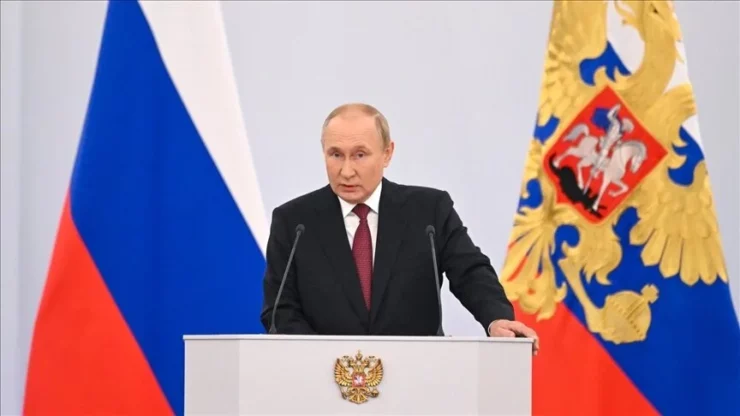
I dare to assert here that the Russian Federation is indeed a major player on the world stage. Ignoring it or underestimating it in making decisions concerning the course of the world is a very serious error in geopolitical and geostrategic calculation. That is to say, a dangerous game that only the Western minority is playing to place humanity on the edge of the precipice, thus plunging the people of the world into chaos that is beyond the understanding of Westerners. While the world is now multipolar and all the nations of the world converge on this point, the tiny Western minority confines itself to the spirit of unipolarism. Which does not prevent the world from moving forward. The Multipolarism on which the new world order is based works and will work with or without the West, which, aware of the expansion of the sphere of influence of the BRICS alliance, has proudly chosen to lock itself into its unipolar philosophy. Blinded by a distant past of domination of the world order, the Western minority is becoming more and more crazy, deaf and mute in the face of major events and changes occurring in global dynamics.
This article aims to educate those nostalgic for unipolarism about the advantages that the Russian Federation has in driving the new multipolar world order under the leadership of the BRICS alliance. It is a matter of succinctly describing Russia’s geopolitical ambitions and actions (1), its military actions and its international status (2), its diplomatic maneuvers and its strategic alliances (3), its economic partnerships and its multilateral initiatives. (4).
- Russia’s geopolitical ambitions and actions
Russia, under the leadership of President Vladimir Putin, is actively pursuing its geopolitical ambitions to further reaffirm its status as a major and significant international player in the world. This is why the country has strategically engaged in various actions to reaffirm its influence and presence on the world stage. These actions are visible in Africa, Asia, Latin America and even in Europe, the United States’ flagship ally in NATO.
- Russia’s military actions and international status
An important aspect of Russia’s strategy has been its military interventions and engagements, which have attracted both attention and concern around the world. The country’s involvement in conflicts such as the Syrian Civil War and its support for regimes such as that of Bashar al-Assad (Syria), Assimi Goïta (Mali), Ibrahim Traoré (Burkina Faso), Abdourahamane Tiani (Niger), Faustin-Archange Touadéra (RCA) and many others around the world have highlighted Russia’s desire to assert itself militarily in key international affairs.
- Russia’s diplomatic strategies/offensives and strategic alliances
In addition to military actions, the Russian Federation, under the auspices of its President Vladimir Putin, has also adopted diplomatic strategies and offensives to strengthen its international position. For example, offering asylum to Edward Snowden , the US whistleblower, was a decision that not only defied US pressure, but also demonstrated the Russian Federation’s willingness to defy rival Western powers.
- Russia’s economic partnerships and multilateral initiatives
Additionally, the Russian Federation has actively engaged in economic partnerships and multilateral initiatives to strengthen its global influence. Membership in groups like BRICS (Brazil, Russia, India, China, South Africa) has allowed the Russian Federation to align itself with other emerging powers and shape international discourse on various issues and gauge of global dynamics.
In light of the above, we can deduce that the multidimensional approach of the Russian Federation, which involves military actions, diplomatic strategies, economic partnerships and participation in international organizations, underlines its status as an important actor on the world stage.
BRICS and Multipolar Russia is a major player in global dynamics that must be recognized and respected for a perfect, coherent reconfiguration of the world scene.
Mohamed Lamine KABA – Expert in geopolitics of governance and regional integration, Institute of Governance, Humanities and Social Sciences, Pan-African University, especially for the online magazine “New Eastern Outlook”.
